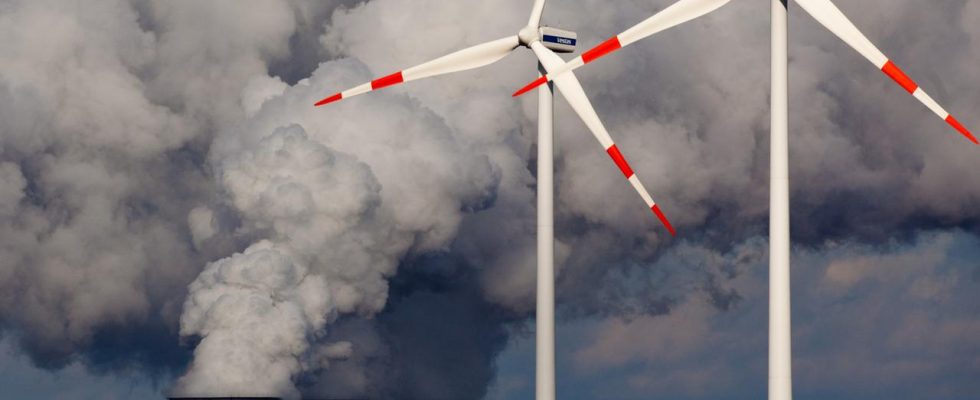faq
The expert council for climate issues still does not give the federal government good marks. What is the Climate Protection Act, how should it be changed and what does the Expert Council do? An overview.
the initial situation
The expert council for climate issues are five men and women from economics and natural sciences. On behalf of the federal government, the independent body today submitted an assessment of the extent to which the draft for the 2023 climate protection program is suitable for meeting the so-called sector targets.
In recent years, this has been achieved in energy production, in industry, in waste and in agriculture. However, the building sector and above all the transport sector are lagging behind the targets.
What is that Climate Protection Act?
The Climate Protection Act has been in place since 2019. It makes binding specifications as to how much greenhouse gas emissions must be saved in various sectors per year. This applies to energy production, industry, buildings, transport, agriculture and waste management.
The goal is greenhouse gas neutrality in Germany by 2045. The Climate Protection Act specifies the figures, and the associated climate protection program defines the measures with which the targets are to be achieved.
In June, the federal government initiated an amendment to the Climate Protection Act. This envisages no longer primarily looking at the annual sector targets, but instead focusing on the total annual emissions of greenhouse gases. So if too much is emitted in traffic, but less than estimated in energy production, this can be offset in future as soon as the Bundestag has passed the amended Climate Protection Act.
What speaks for changing the climate protection law?
From the point of view of the Federal Government, the decisive factor is how CO2 emissions develop overall. Last year we were on schedule – although the targets in the transport and building sectors were missed. The FDP in particular advocates more flexible handling of the sector targets, since the switch to climate-friendly drives in traffic will take time.
What speaks against the change?
Environmental groups criticize the planned change in the law. From their point of view, binding sector targets are needed, because otherwise there will not be enough pressure.
The German climate protection law with its yearly sector targets is particularly strict worldwide. Other countries have less detailed requirements.
What is the assessment of the expert council?
The expert council for climate issues still does not give the federal government good marks. Climate protection measures, while going in the right direction, are still not enough. “In the case of a number of measures, we are critical of the probability of implementation and the deviation between reality and the assumptions of the federal government in the documents,” said Hans-Martin Henning, chairman of the expert council. “The expected overall reduction is therefore probably overestimated.”
The panel of experts emphasized that there could be significant greenhouse gas savings, particularly in the energy and industry sectors. On the other hand, there are still problems in the building sector and especially in traffic. In the building sector, a total of 35 million tons of CO2 will remain by 2030, which must be saved in order to achieve the climate targets. In the transport sector it will be between 117 and 191 million tons by 2030.
In general, according to the current climate protection law: If a sector fails to meet the targets, the responsible ministry must set up an emergency program within three months. Because of the planned system change in the Climate Protection Act, the building and transport ministries have waived emergency programs.
However, the assessment still refers to the rules of the old climate protection law – which will soon no longer apply if the Bundestag passes the planned law.
What measures to reduce CO2 are planned?
In the coming year, the CO2 price is to be raised for buildings and transport. This will make heating and refueling more expensive. At the pumps, that should account for around four cents per liter.
In addition, a separate CO2 surcharge on the truck toll is planned for next year. The federal government is hoping for more train passengers with the introduction of the Deutschlandticket. And the heating law is expected to reduce CO2 emissions from buildings.

